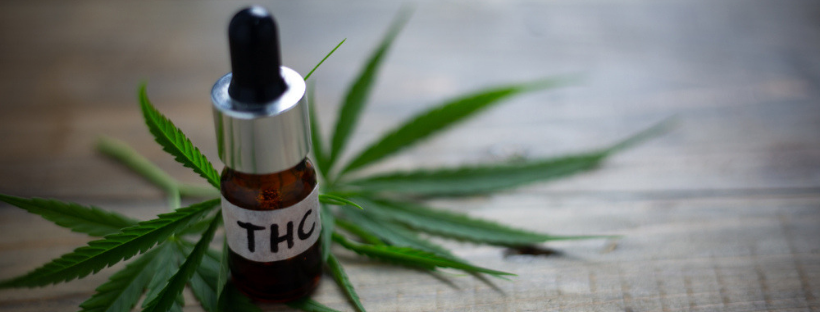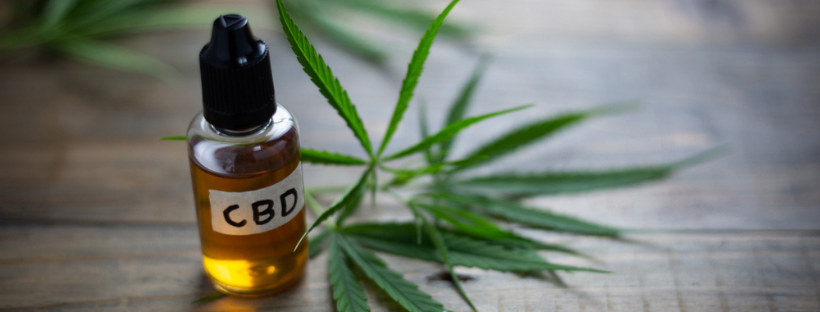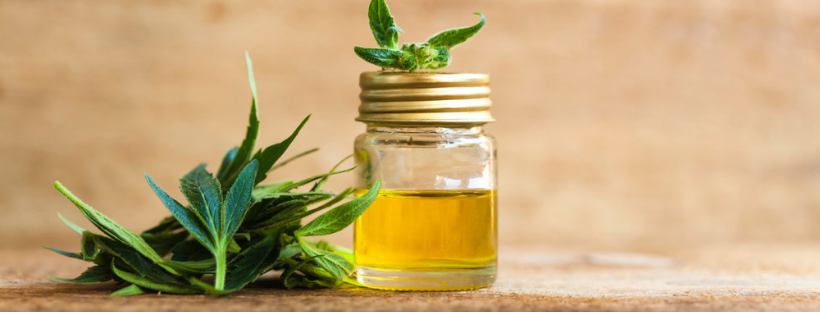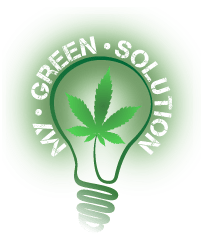The legal use of cannabis is on the rise. Today, we know a lot more about the plant than we did 10 years ago. Cannabis consumers are becoming more aware of the benefits of different cannabinoids; they’re also more curious about their options.
Cannabidiol (CBD) and tetrahydrocannabinol (THC) are the two most abundant compounds found in plants of the Cannabis genus. The highest concentrations of THC usually exist in marijuana plants, while hemp is believed to be a better source of CBD.
But what’s the difference between CBD vs. THC?
What are the benefits of these cannabinoids and why are they called the Yin and Yang of Cannabis?
What are the possible side effects?
And finally, how the legality of marijuana affects the availability of certain cannabis products?
Let’s dive into this and answer all of the above questions.
What is THC?
THC is the primary psychoactive component of the cannabis plant. It’s responsible for creating the ‘high’ associated with recreational and medical of marijuana, the THC-rich variety of cannabis.
THC produces its effects, mostly, by mimicking the effects of anandamide, a natural neurotransmitter produced by the human body to control an array of biological functions such as perception of pain, sleeping habits, appetite, immune response, body temperature, mood, and countless other processes.
Here are the most common effects of THC:
- Relaxation
- Euphoria
- Sharpened senses of sight, smell, and hearing
- Sedation
- Reduced aggression
- Appetite boost
- Dampened pain perception
The effects of THC go hand in hand with their benefits.
Speaking of which…

What Are the Benefits of THC?
THC has been shown to have many potential medical applications since its discovery in 1964.
The growing body of scientific evidence suggests that THC may be helpful in treating:
- Chronic pain
- Inflammation
- Digestive issues
- Eating disorders
- Nausea and vomiting
- Symptoms of HIV/AIDS
- Multiple sclerosis
- Neurodegenerative disorders
- Tumors
- Trauma
- Tremors after spinal injury
Potential Side Effects of THC
While it’s impossible to fatally overdose on THC, abusing this compound involves a few short-term side effects.
These include dizziness, increased heart rate, confusion, slowed motor function, short-term memory issues, and anxiety (when consumed in high doses).
THC works better with one’s age. However, its mind-altering properties may pose threat for developing brains of adolescents when consumed regularly at high doses — just as any psychoactive substance, to be honest.
What is CBD?
CBD is one of the most important cannabinoids contained in the cannabis plant. It appears both in hemp, as well as in selectively-bred marijuana plants. While cannabinoids exist within several plants in nature, CBD is unique to the cannabis family.
CBD has the same chemical makeup as THC, save for its arrangement of atoms. This slight difference blocks CBD from becoming psychoactive, as it cannot directly bind to any of the cannabinoid receptors in the body.
Instead, cannabidiol stimulates the endocannabinoid system (ECS) to produce more of its natural cannabinoids, which can bring relief from unwanted discomfort, with little to no noticeable effect of your cognitive performance.
The most common effects of CBD include:
- Relaxation
- Improved focus
- Stress relief
- Dampened pain perception
- Appetite regulation

What Are the Benefits of CBD?
Current scientific data indicate that CBD may alleviate the following conditions:
- Anxiety
- ADHD
- Acne
- Amyotrophic Lateral Sclerosis (ALS)
- Bacterial Infections
- Broken bones
- Depression
- Diabetes
- Dyskinesia
- Epilepsy
- Heart Disease
- Inflammation
- Irritable Bowel Syndrom (IBS)
- Mad Cow Disease
- Multiple Sclerosis (MS)
- Pain
- Parkinson’s
- Psoriasis
- Rheumatoid Arthritis
- Schizophrenia
- Substance Abuse/Withdrawal
Potential Side Effects
CBD is safe for human consumption and comes with virtually no serious side effects. Of course, some mild adverse reaction might occur due to consuming CBD at high doses by new users, but these are typical to all plants from the cannabis family These are dry mouth, lowered heart rate, dry eyes, and dizziness.
CBD vs. THC? Rather CBD AND THC
Studies suggest CBD may be more effective for inflammation and neuropathic pain, while THC may have the upper hand in terms of reducing spasticity and cramp-related pain.
Many individuals have difficulties managing the side effects associated with the psychoactive qualities of THC. On the other hand, those using CBD often say that THC’s legal limit of 0.3% is not enough to allow CBD to show its full potential. Sometimes, as little as 1% of THC can significantly improve the therapeutic properties of cannabidiol without making the user feel overwhelmed.
That’s why some experts suggest that a mix of THC and CBD is the proverbial golden mean, backing their beliefs with something known as the entourage effect.

The Entourage Effect
The entourage effect refers to a situation where the 400+ compounds in cannabis enter a synergy to create a particular set of effects on the body and brain.
For example, 100 mg of a whole-plant CBD-extract is supposed to be substantially more effective at alleviating certain symptoms than 100 mg of isolated CBD. Many argue that trying to lessen — or entirely remove — the content of a particular cannabinoid from the plant can compromise the effects of the extract. That’s because the presence of all the cofactors is necessary to facilitate proper absorption of cannabinoids.
This argument is often used in the debate over hemp-derived CBD oil vs. CBD oil from marijuana.
While CBD-rich hemp extracts are usually more cost-effective — unless the manufacturer uses selectively-bred marijuana strains — the absence of clinically significant levels of THC and terpenes may cause users to experience less benefit from the product.
Currently, we don’t have enough evidence (yet!) that would support the theory of the entourage effect, so it’s up to you to decide which option works best for them.
CBD vs. THC: Legality
CBD lacks the psychoactive effects of THC. In fact, it can counteract the intense high from THC. Given this, cannabidiol is legal in most places across the world.
THC, on the other hand, is considered an illicit substance in the majority of countries due to the the aftermath of Nixon’s War on Drugs. Although the situation is changing — slowly but surely — THC-rich products can be obtained only in places where marijuana is legal, such as Canada, Uruguay, the Netherlands, and 11 U.S. states. Many countries have already decriminalized cannabis and allow the medical use of the plant, preparing for the recreational reform.
CBD has been making headlines for quite some time now, and cannabis breeders are currently creating strains with higher CBD to THC ratios to give the users the opportunity to experience the benefits of cannabis without getting too stoned.
Which side are you on? Team CBD or THC?
Do you believe in the entourage effect in cannabis?


One thought on “CBD vs THC: What Are the Benefits?”